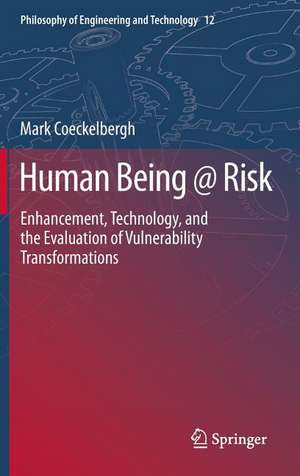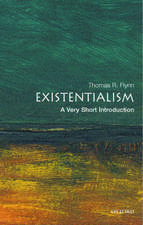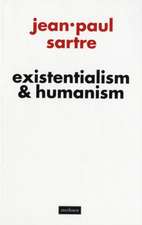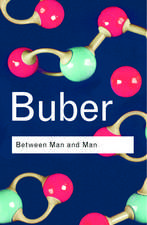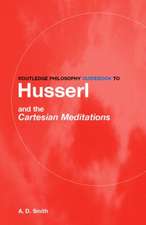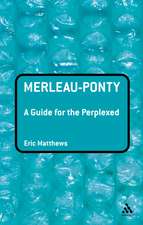Human Being @ Risk: Enhancement, Technology, and the Evaluation of Vulnerability Transformations: Philosophy of Engineering and Technology, cartea 12
Autor Mark Coeckelberghen Limba Engleză Hardback – 2 mar 2013
Responding to the discussion about human enhancement and information technologies, the book then shows that this dynamic-relational approach has important implications for the evaluation of new technologies and their risks. It calls for a normative anthropology of vulnerability that does not ask which objective risks are acceptable, how we can become invulnerable, or which technologies threaten human nature, but which vulnerability transformations we want. To the extent that we can steer the growth of new technologies at all, this tragic and sometimes comic project should therefore beguided by what we want to become.
| Toate formatele și edițiile | Preț | Express |
|---|---|---|
| Paperback (1) | 1104.88 lei 43-57 zile | |
| SPRINGER NETHERLANDS – 7 mar 2015 | 1104.88 lei 43-57 zile | |
| Hardback (1) | 1110.86 lei 43-57 zile | |
| SPRINGER NETHERLANDS – 2 mar 2013 | 1110.86 lei 43-57 zile |
Din seria Philosophy of Engineering and Technology
-
 Preț: 378.64 lei
Preț: 378.64 lei - 15%
 Preț: 662.95 lei
Preț: 662.95 lei -
 Preț: 280.88 lei
Preț: 280.88 lei - 20%
 Preț: 551.31 lei
Preț: 551.31 lei - 15%
 Preț: 646.75 lei
Preț: 646.75 lei - 24%
 Preț: 806.73 lei
Preț: 806.73 lei - 15%
 Preț: 644.82 lei
Preț: 644.82 lei -
 Preț: 392.97 lei
Preț: 392.97 lei - 18%
 Preț: 958.07 lei
Preț: 958.07 lei - 15%
 Preț: 645.28 lei
Preț: 645.28 lei - 15%
 Preț: 644.63 lei
Preț: 644.63 lei -
 Preț: 394.12 lei
Preț: 394.12 lei -
 Preț: 393.52 lei
Preț: 393.52 lei - 15%
 Preț: 644.49 lei
Preț: 644.49 lei - 15%
 Preț: 660.04 lei
Preț: 660.04 lei - 15%
 Preț: 654.43 lei
Preț: 654.43 lei - 15%
 Preț: 646.43 lei
Preț: 646.43 lei - 18%
 Preț: 788.90 lei
Preț: 788.90 lei - 15%
 Preț: 646.75 lei
Preț: 646.75 lei -
 Preț: 370.49 lei
Preț: 370.49 lei -
 Preț: 387.78 lei
Preț: 387.78 lei - 18%
 Preț: 735.07 lei
Preț: 735.07 lei - 18%
 Preț: 956.18 lei
Preț: 956.18 lei - 15%
 Preț: 637.59 lei
Preț: 637.59 lei - 18%
 Preț: 1009.40 lei
Preț: 1009.40 lei - 18%
 Preț: 787.91 lei
Preț: 787.91 lei - 15%
 Preț: 638.89 lei
Preț: 638.89 lei - 20%
 Preț: 566.75 lei
Preț: 566.75 lei - 18%
 Preț: 725.43 lei
Preț: 725.43 lei
Preț: 1110.86 lei
Preț vechi: 1354.71 lei
-18% Nou
Puncte Express: 1666
Preț estimativ în valută:
212.57€ • 222.49$ • 176.92£
212.57€ • 222.49$ • 176.92£
Carte tipărită la comandă
Livrare economică 31 martie-14 aprilie
Preluare comenzi: 021 569.72.76
Specificații
ISBN-13: 9789400760240
ISBN-10: 9400760248
Pagini: 232
Ilustrații: XIV, 218 p.
Dimensiuni: 155 x 235 x 18 mm
Greutate: 0.5 kg
Ediția:2013
Editura: SPRINGER NETHERLANDS
Colecția Springer
Seria Philosophy of Engineering and Technology
Locul publicării:Dordrecht, Netherlands
ISBN-10: 9400760248
Pagini: 232
Ilustrații: XIV, 218 p.
Dimensiuni: 155 x 235 x 18 mm
Greutate: 0.5 kg
Ediția:2013
Editura: SPRINGER NETHERLANDS
Colecția Springer
Seria Philosophy of Engineering and Technology
Locul publicării:Dordrecht, Netherlands
Public țintă
ResearchCuprins
Part I Descriptive Anthropology of Vulnerability.- Chapter 1. The Transhumanist Challenge.- Chapter 2. An Anthropology of Vulnerability.- Chapter 3. Cultures and Transformations of Vulnerability.- Part II Normative Anthropology of Vulnerability.- Chapter 4. Ethics of Vulnerability (1): Implications for ethics of technology.- Chapter 5. Ethics of Vulnerability (2): Imagining the Posthuman future.- Chapter 6. Ethics of Vulnerability (3): Vulnerability in the Information Age.- Chapter 7. Politics of Vulnerability: Freedom, Justice, and the Public/Private distinction.- Chapter 8. Normative Aesthetics of Vulnerability: The Art of Coping with Vulnerability.- Conclusion.
Recenzii
“Coeckelbergh is a Belgian philosopher of technology and professor at the University of Vienna. In this interesting book, he proposes a new approach to the transhumanism debate by focusing on human vulnerability. … the book offers a new approach to the transhumanist debate, suggesting and provoking many inputs and questions … . it reminds us of the necessity and urgency of dealing with the transhumanist question, which is not only a future question, but a current one.” (Luis Torró Ferrero, ESSSAT News & Reviews, Vol. 26 (4), December, 2016)
“It is thoroughly unique and original in showing the importance and extreme usefulness of philosophical anthropology and the phenomenological tradition for thinking through the consequences of the epochal technological mutations of our time … . author has succeeded in crafting a muchmore profound and sophisticated ethical and political perspective on human enhancement than almost any other book … . It deserves to be widely read and has the potential of becoming a key reference for the debate on enhancement.” (Pieter Lemmens, Human Studies, Vol. 37, 2014)
“The book offers a complex and ambitious programme to establish a normative anthropology of vulnerability … . Coeckelbergh has written an important and original book, with a carefully constructed argument. He provides a rich discussion of fundamental and topical issues from a wide range of perspectives. … The book is valuable for scholars in many fields, not only philosophy of technology, anthropology or ethics, but also other disciplines dealing with technology and regulation of technology.” (Bert-Jaap Koops, Law, Innovation and Technology, Vol. 5 (2), 2013)
“It is thoroughly unique and original in showing the importance and extreme usefulness of philosophical anthropology and the phenomenological tradition for thinking through the consequences of the epochal technological mutations of our time … . author has succeeded in crafting a muchmore profound and sophisticated ethical and political perspective on human enhancement than almost any other book … . It deserves to be widely read and has the potential of becoming a key reference for the debate on enhancement.” (Pieter Lemmens, Human Studies, Vol. 37, 2014)
“The book offers a complex and ambitious programme to establish a normative anthropology of vulnerability … . Coeckelbergh has written an important and original book, with a carefully constructed argument. He provides a rich discussion of fundamental and topical issues from a wide range of perspectives. … The book is valuable for scholars in many fields, not only philosophy of technology, anthropology or ethics, but also other disciplines dealing with technology and regulation of technology.” (Bert-Jaap Koops, Law, Innovation and Technology, Vol. 5 (2), 2013)
Textul de pe ultima copertă
Whereas standard approaches to risk and vulnerability presuppose a strict separation between humans and their world, this book develops an existential-phenomenological approach according to which we are always already beings-at-risk. Moreover, it is argued that in our struggle against vulnerability, we create new vulnerabilities and thereby transform ourselves as much as we transform the world.
Responding to the discussion about human enhancement and information technologies, the book then shows that this dynamic-relational approach has important implications for the evaluation of new technologies and their risks. It calls for a normative anthropology of vulnerability that does not ask which objective risks are acceptable, how we can become invulnerable, or which technologies threaten human nature, but which vulnerability transformations we want. To the extent that we can steer the growth of new technologies at all, this tragic and sometimes comic project should therefore beguided by what we want to become.
Responding to the discussion about human enhancement and information technologies, the book then shows that this dynamic-relational approach has important implications for the evaluation of new technologies and their risks. It calls for a normative anthropology of vulnerability that does not ask which objective risks are acceptable, how we can become invulnerable, or which technologies threaten human nature, but which vulnerability transformations we want. To the extent that we can steer the growth of new technologies at all, this tragic and sometimes comic project should therefore beguided by what we want to become.
Caracteristici
First book to argue that posthuman existence also implies new vulnerabilities Integrates Risk Theory with Philosophical Anthropology Offers an original ethical and political analysis of vulnerability in the information age? Includes supplementary material: sn.pub/extras
